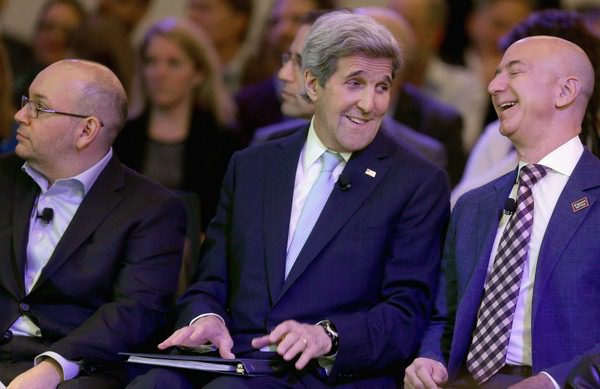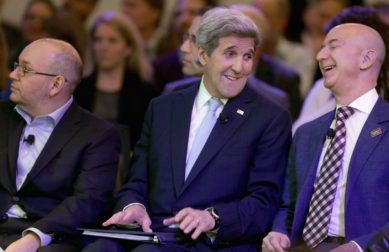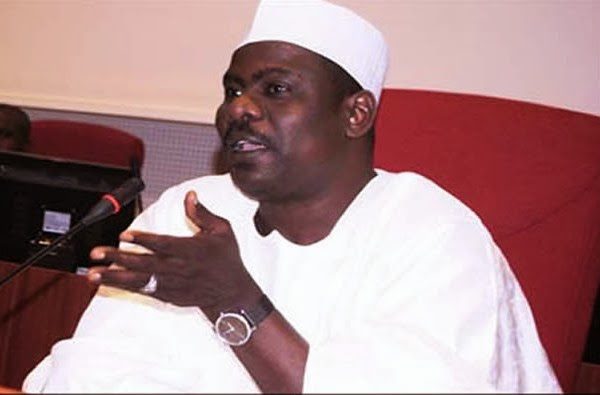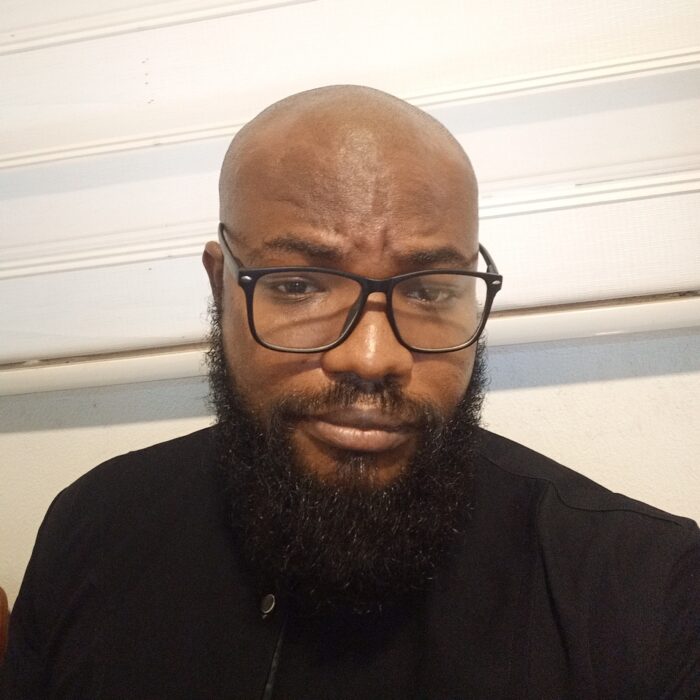Global Issues
The Media As Quintessential Defender of Truth and Freedom -By John Kerry


Everybody knows that every institution, but particularly a newspaper, needs tremendous leadership. And you’ve had that here for decades – a legendary editor in Ben Bradlee, legendary owner Katharine Graham and the Graham family, and it still has that kind of leadership with Jeff Bezos and its publisher Fred Ryan. And as for Marty Baron, I can remember personally the tremendous job that he did editing my hometown paper. And the movie Spotlight, Marty, I think, nailed what you’re all about. It also nailed what the best journalism can do by peeling away the layers of indifference and finding answers to questions that a lot of people are afraid to ask. It’s no coincidence that critics have called Spotlight the best film about the newsroom since All the President’s Men.
The last time the Post inaugurated its headquarters was 1972, and the White House was slamming the paper’s coverage of a certain third-rate burglary. And a year earlier, the Nixon administration had tried, passionately, to stop the publishing of the Pentagon Papers. And for many of us, this was a formative moment in our political lives and in our lives, period. Make no mistake, one reason that so many people in the media today are prepared to tell the truth, to stand up to powerful interests, is precisely because The Washington Post proved that not even the president of the United States is above the law.
So as you enter a new home, you bring with you some glorious and some ink-stained baggage – not only from Woodward and Bernstein, but from Greenfield, Broder, McGrory, Buchwald, Herblock, Povich, Raspberry, Bradlee, and many, many more. That’s what you bring with you. But you also bring something else. You bring a commitment to the future and to defining the future that is different from that of so many countries that I am privileged to visit in my capacity as Secretary of State.
The dedication of this building is a neon sign of faith in the future of journalism, the future of newspapers themselves. And we’ve all heard the modern-day Cassandras’ prophecy that – because of new technology – traditional journalism is a dying enterprise.
But they don’t honour the fact that knowing the truth, curiosity is just part of the human DNA. As a species, we are driven to know what’s going on in the world – maybe particularly as Americans – it’s in our DNA. And that desire resides deep in the bloodstream of every journalist, aspiring or established. I can tell you from my perch – and I talked about this a little bit in Davos the other day, with the levels of corruption in failed and failing states – it is absolutely vital that the truth emerge and that facts be known, because otherwise, people just make stuff up and feed whatever propaganda they want. And we’ve seen that in these modern times with great damaging effect.
We see it in what happens in the absence of knowledge and the power that it gives to dictators, to demagogues, to tyrants. Silence allows crime and corruption to rot whole countries. Ignorance allows demagogues to argue that up is down and black is white, that merely interviewing a dissident is somehow tantamount to treason and, yes, some people to even claim that rape and murder of an innocent is the calling of God.
You know better than I do that we live today in a global fish bowl. With the help of social media and a gazillion cameras, we have more awareness, data sources, access than ever before. And in my profession and yours, we are all constantly drawn – or pushed – to places where fundamental facts are in dispute, and somebody has to find the truth. Truth does battle with myths everywhere now, and competing myths fight one against the other, making objectivity on political life the first casualty, and often not the last.
So this struggle to define truth is really what moving into this building and continuing the great tradition of this paper is all about. Finding the truth is at the heart of the Arab-Israeli dispute. It’s at the heart of defining the difference between Sunni and Shia, extremism and religion. It’s at the heart of the crisis involving Russia and Ukraine. It’s at the heart of the South China Sea conflict. And most starkly, it is in the narratives that are put forth by terrorists who are utterly repellent to most people but actually still attractive to some.
So this is a very precious endeavour, and I just leave you with one or two quick observations. Last year alone, 71 media workers were killed while on duty and almost 200 were thrown into jail. The most dangerous country was Syria, where the incomparable Anthony Shadid died in 2012. And Shadid, as everybody here knows – made his name here at the Post, worked in Boston too – had a rare gift for uncovering everyday stories that confirm, clarify, warn against, or utterly defy conventional assumptions about the direction and meaning of events. That’s the best of journalism. And while pursuing these essential stories, he was shot and wounded in the West Bank, kidnapped and beaten in Libya, stalked in Lebanon, all before he even secretly entered into Syria to report on the civil war.
Years ago when I was in Vietnam, I would read occasionally or hear occasionally of a journalist who was killed, who had died. And almost always the reason was essentially an accident: someone caught in a crossfire, perhaps stepping on a landmine. I think what distinguished it is it was essentially anonymous. That is not true today. Journalists then were rarely hunted. Today they are. In our era, roughly two-thirds of the reporters who die violently are killed not in spite of their profession but because of it. And they are attacked for what they have written, silenced for what they have witnessed, or kidnapped for the leverage that their capture might provide. And in most cases, the perpetrators are never caught.
In October 2007, Salih Saif Aldin was shot and killed while reporting on sectarian violence in a neighbourhood southwest of Baghdad. Who murdered him is still not known. The why is anybody’s guess. And years before, at the insistence of his employer at The Washington Post, he had moved away from his hometown of Tikrit, where corrupt officials had placed a bounty on his head. That’s the price of journalism today. Salih’s colleagues remembered him as a fearless questioner who never shied away from the toughest assignments, and he died in answer to a calling that matters, with the hope in his heart that the information that he uncovered would help his troubled country find a better future.
The truth is that independent media – reporters, broadcasters, photographers, bloggers, even cartoonists – are under constant pressure today, whether physical or political. And here we are well into the 21st century, and yet only about one person in six lives in a country where the press can truly be described as free.
So it is up to us, up to you, up to the defenders of liberty to close ranks. And this begins with the recognition that no government, whatever its pretensions and whatever its accomplishments, can fairly call itself great if its citizens are not allowed to say what they believe or are denied the right to learn about events and decisions that affect their lives. So let me underscore: A country without a free and independent press has nothing to brag about, nothing to teach, and no way to fulfill its potential.
To those who try to intimidate or imprison reporters, we need to stand up and say loud and clear that committing journalism, reporting on the truth, is not a crime. It is a badge of honour. It is a public service.
I’m also proud to think that since Thomas Jefferson up to this very moment, our country has been associated, more than any other nation on the face of this planet, with liberty of expression and thought.
So today we dedicate a new headquarters for an institution that has earned a place of extraordinary honour in any history of press freedom. We do so at a moment when the topic of freedom for journalists is particularly fresh in our minds and when the struggle for justice and truth is being waged on every continent of this planet. I’ve got to tell you, as Secretary of State, my fondest hope would be for your war correspondents and chroniclers of conflict to have nothing to report. But with the world as it is, I know I can speak for our entire nation in saying we are so grateful to have you do what you do.
John Kerry is the American Secretary of State.
SOURCE – Washington Post‘s new headquarters – January 28, 2016 in Washington DC, USA.




















